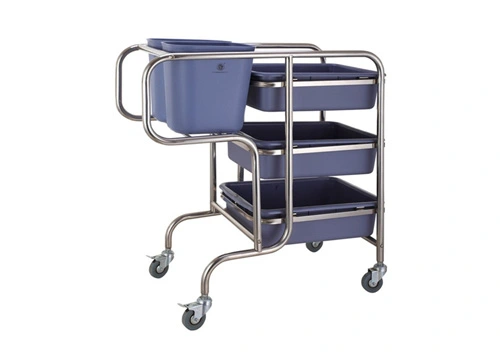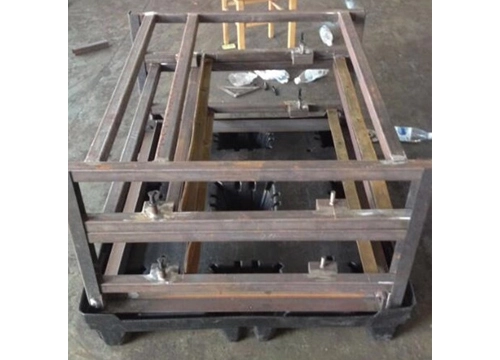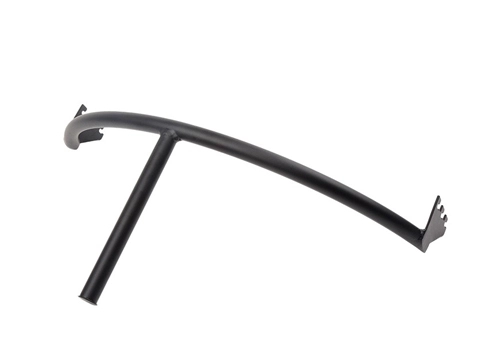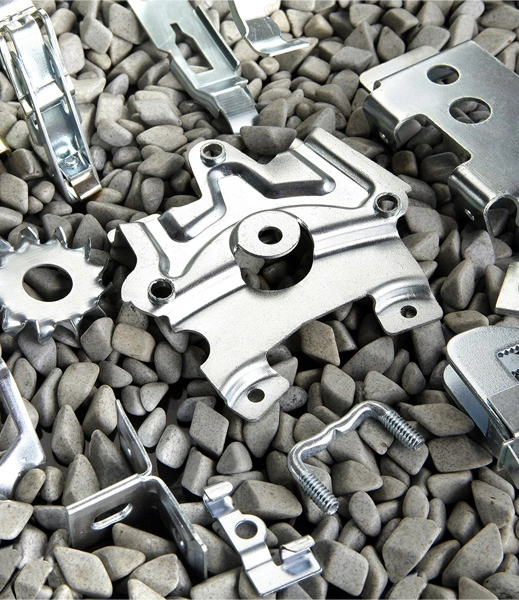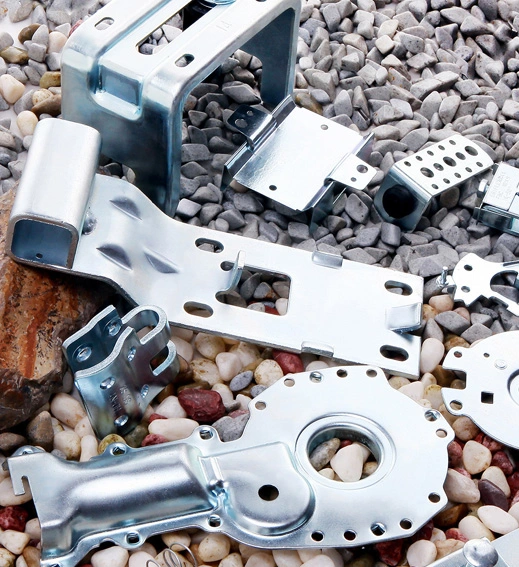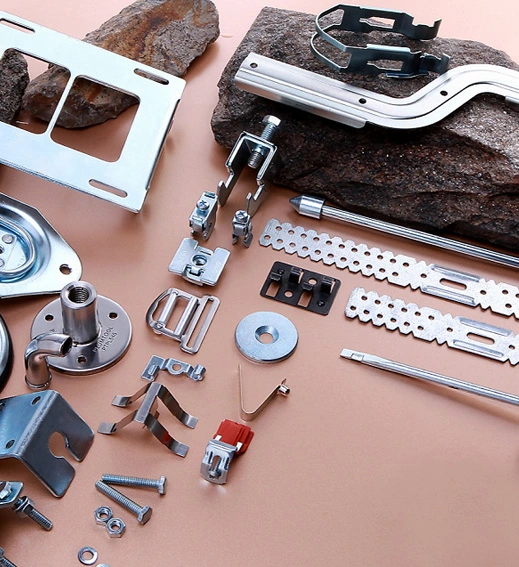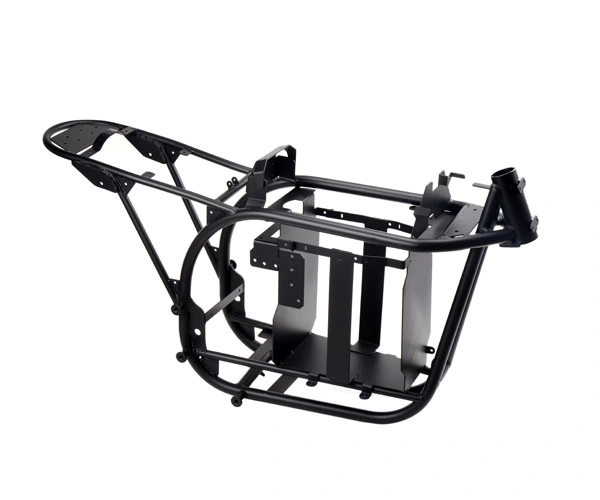

Material: Carbon steel
Surface: powder coating
Customized Size
Main Process: bending and welding
Tolerance: ±0.5mm
Motorcycle electric vehicle frame welding, guard bar welding, basket welding
Welding technology is mainly applied to metal substrates, commonly used methods include arc welding, argon arc welding, CO2 shielded welding, oxygen acetylene welding, laser welding, slag pressure welding, and other types of welding. Non metallic materials such as plastics can also be welded. There are more than 40 metal welding methods, mainly divided into three categories: fusion welding, pressure welding, and brazing.
1. Fusion welding
It is a method of heating the workpiece interface to a molten state during the welding process and completing the welding without applying pressure. During fusion welding, the heat source rapidly heats and melts the interface between the two workpieces to be welded, forming a molten pool. The molten pool moves forward with the heat source and forms a continuous weld after cooling, connecting the two workpieces into one. During the welding process, if the atmosphere comes into direct contact with a high-temperature molten pool, the oxygen in the atmosphere will oxidize metals and various alloy elements. Nitrogen, water vapor, and other substances in the atmosphere entering the melt can also form defects such as pores, slag inclusions, and cracks in the weld during the subsequent cooling process, deteriorating the quality and performance of the weld.
2. Pressure welding
It is the process of achieving atomic bonding between two workpieces in a solid state under pressure conditions, also known as solid-state welding. The commonly used pressure welding process is resistance butt welding. When the current passes through the connection end of two workpieces, the temperature at that point rises due to the high resistance. When heated to a plastic state, it is connected as a whole under axial pressure. The common feature of various pressure welding methods is to apply pressure during the welding process without adding filler material. Most pressure welding methods such as diffusion welding, high-frequency welding, cold pressure welding, etc. do not have a melting process, so there is no problem of beneficial alloy element burning and harmful element intrusion into the weld seam like fusion welding, which simplifies the welding process and improves welding safety and hygiene conditions. Meanwhile, due to the lower heating temperature and shorter heating time compared to fusion welding, the heat affected zone is smaller. Many materials that are difficult to weld with fusion welding can often be welded with pressure welding to form high-quality joints with the same strength as the base material.
3. Brazing
It is a method of welding that uses metal materials with a lower melting point than the workpiece as brazing material, heats the workpiece and brazing material to a temperature higher than or lower than the melting point of the workpiece, wets the workpiece with liquid brazing material, fills the interface gap, and achieves atomic diffusion with the workpiece. The joint formed during welding that connects two connected bodies is called a weld seam. The two sides of the weld seam will be subjected to welding heat during welding, resulting in changes in microstructure and properties. This area is called the heat affected zone. During welding, due to differences in workpiece materials, welding materials, welding currents, etc., overheating, embrittlement, quenching, or softening may occur in the weld seam and heat affected zone after welding, which can also lead to a decrease in the performance of the welded part and deteriorate its weldability. This requires adjusting the welding conditions. Preheating the interface of the welded part before welding, insulation during welding, and post weld heat treatment can improve the welding quality of the welded part.
